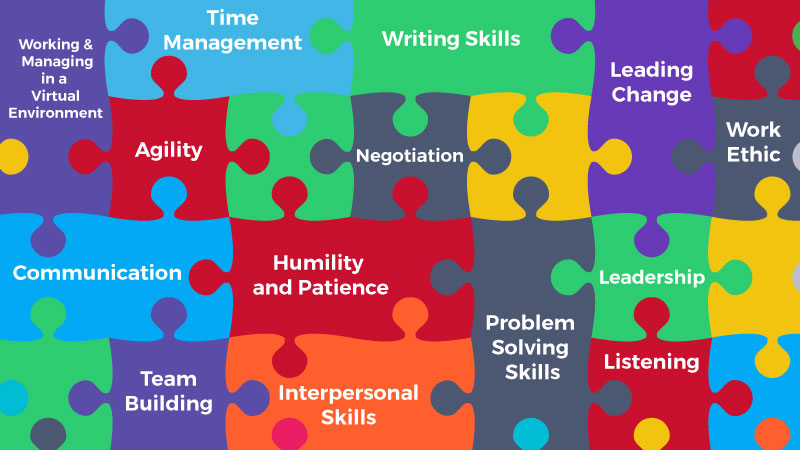
Soft Skills Training for Employees
Soft skills training is the number one priority for HR and L&D leaders at companies across industries. And for good reason. Rapid tech innovation causes business needs to change so rapidly, and skill shelf life continues to shrink as a result.
L&D leaders feel getting employees to make time for soft skills training to be their top challenge. Almost, 94% of employees say that they’re more likely to stay at a company longer if there are opportunities for professional development.
5 Key Traits to Target with Soft Skills Training
When hard skills are the primary focus, it’s easy to quantify abilities and match them to a specific role in an organization. However, we should really be paying attention to how soft skills training correlates with team metrics and employee retention.
The following 5 soft skills don’t just increase the performance of individual employees. They boost team and company-wide performance as well.
- Communication: Written and verbal communication skills are largely responsible for how co-workers perceive an individual’s capabilities and contributions to the organization. When an employee can communicate effectively, it makes them come across as more productive while also making it easier to build relationships and collaborate across the organization.
- Adaptability/Flexibility: Because market demands change so rapidly, employees can’t grow complacent with their existing skillsets. Recognizing the importance of soft skills means remaining flexible, pivoting and learning as roles transform to keep companies ahead of their competition.
- Critical Thinking: Especially in the age of big data, businesses need to know that employees can put an abundance of information to good use. Data doesn’t help the business much if no one can pull valuable insights from it. Employees that bring unique perspectives and ideas to an organization will be highly valued regardless of changes in necessary hard skills.
- Time Management: The lines between work and life are blurring and employees have more distractions than ever preventing engagement on the job. Employees that excel at time management can provide value to an organization by remaining productive and finding ways to work on new ideas that will propel the company forward.
- Conflict Resolution: Even in the best work environments, conflicts emerge every day. That’s what happens when people work together (whether they are good collaborators or not). Valuable employees have strong conflict resolution skills, finding ways to promote teamwork no matter what situation comes up.